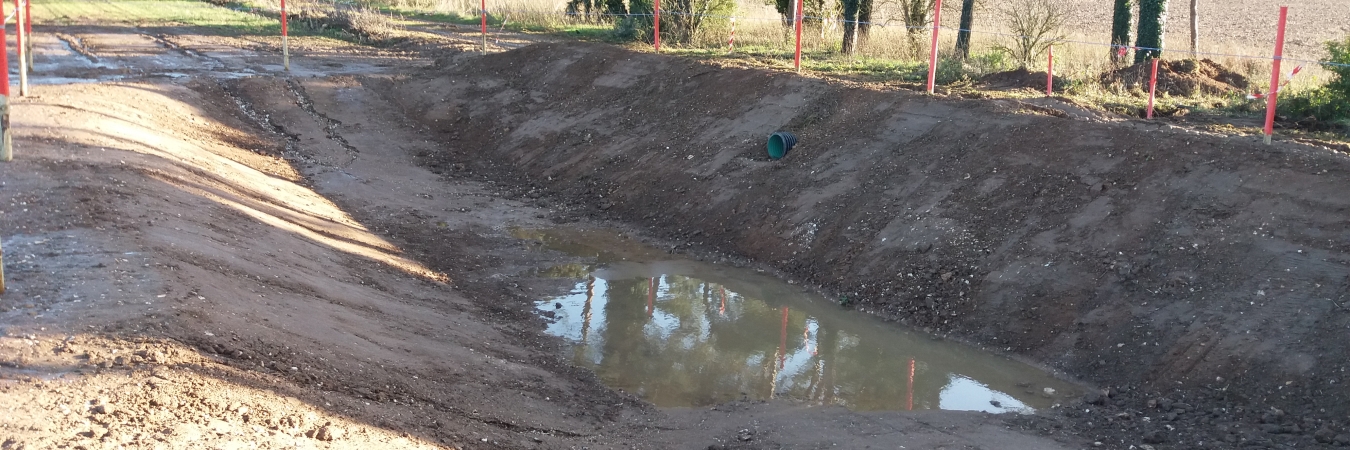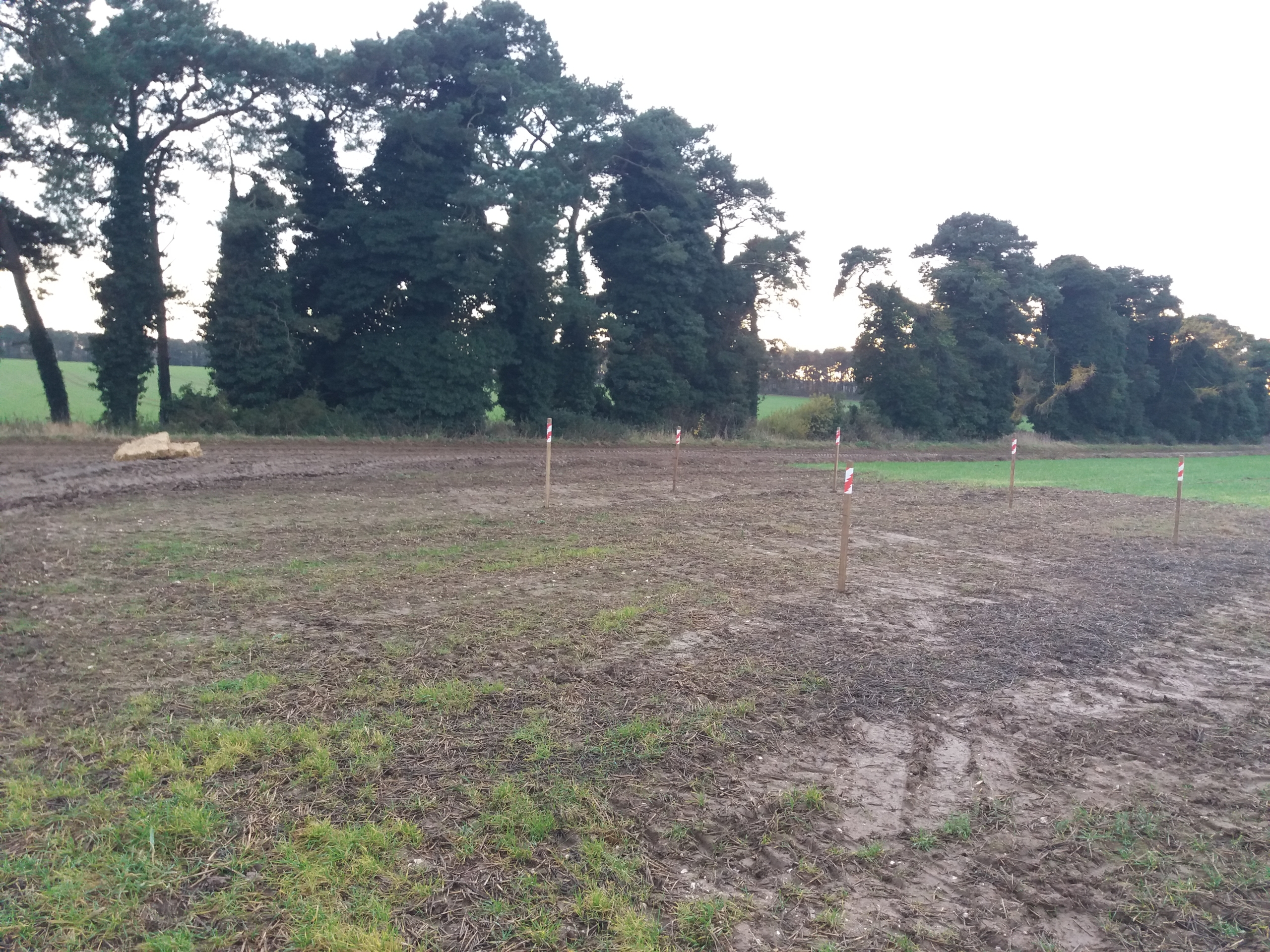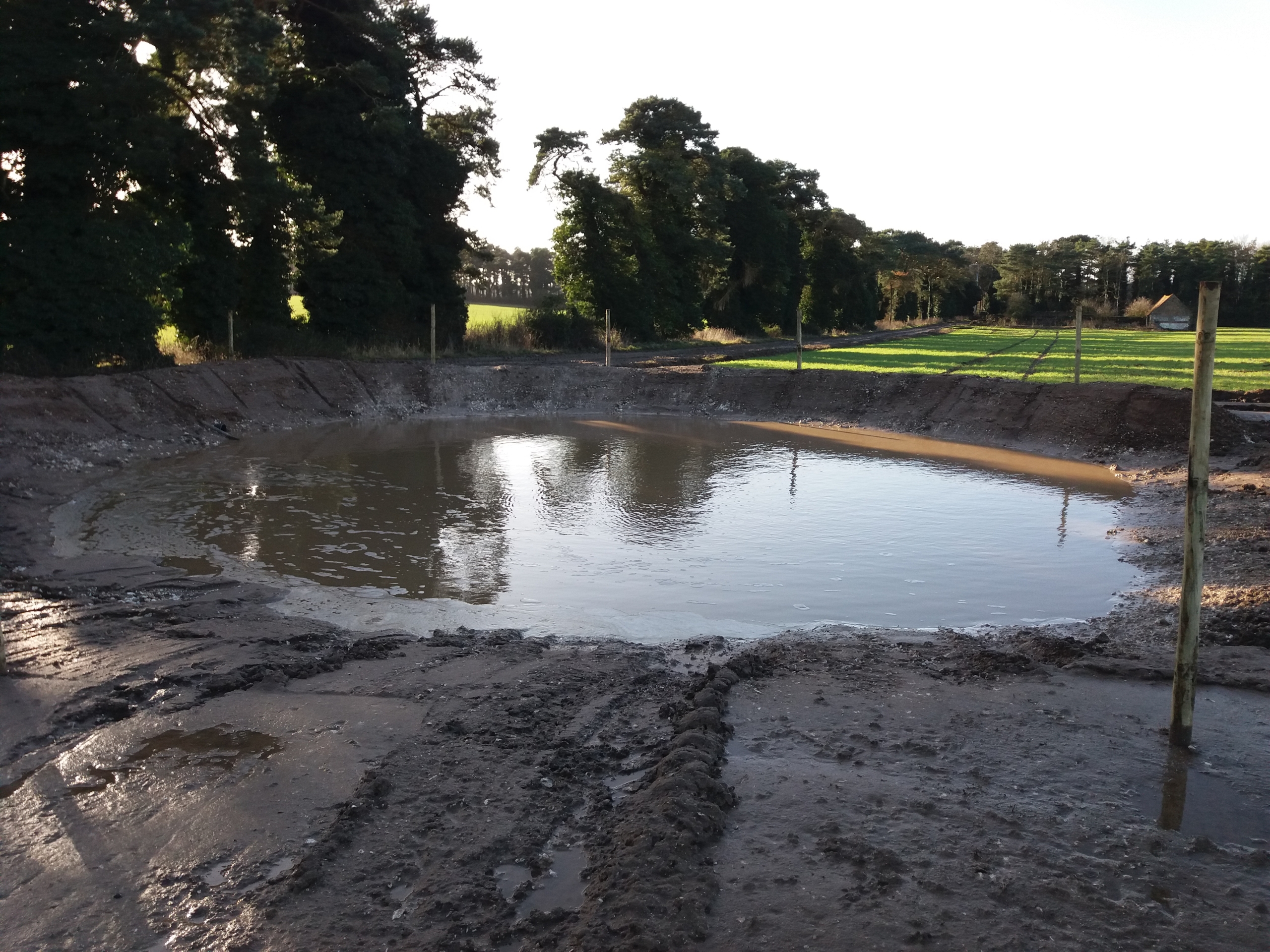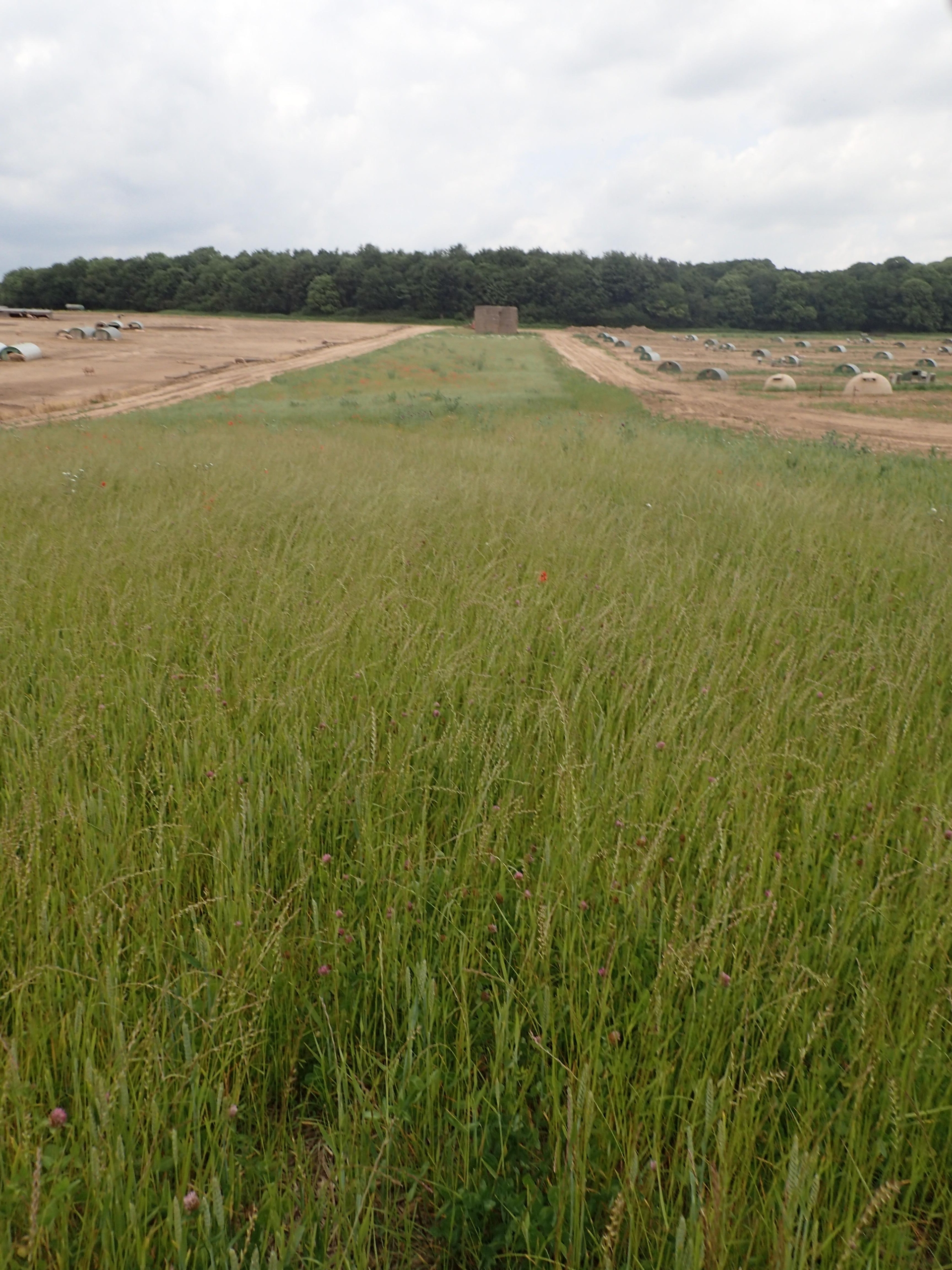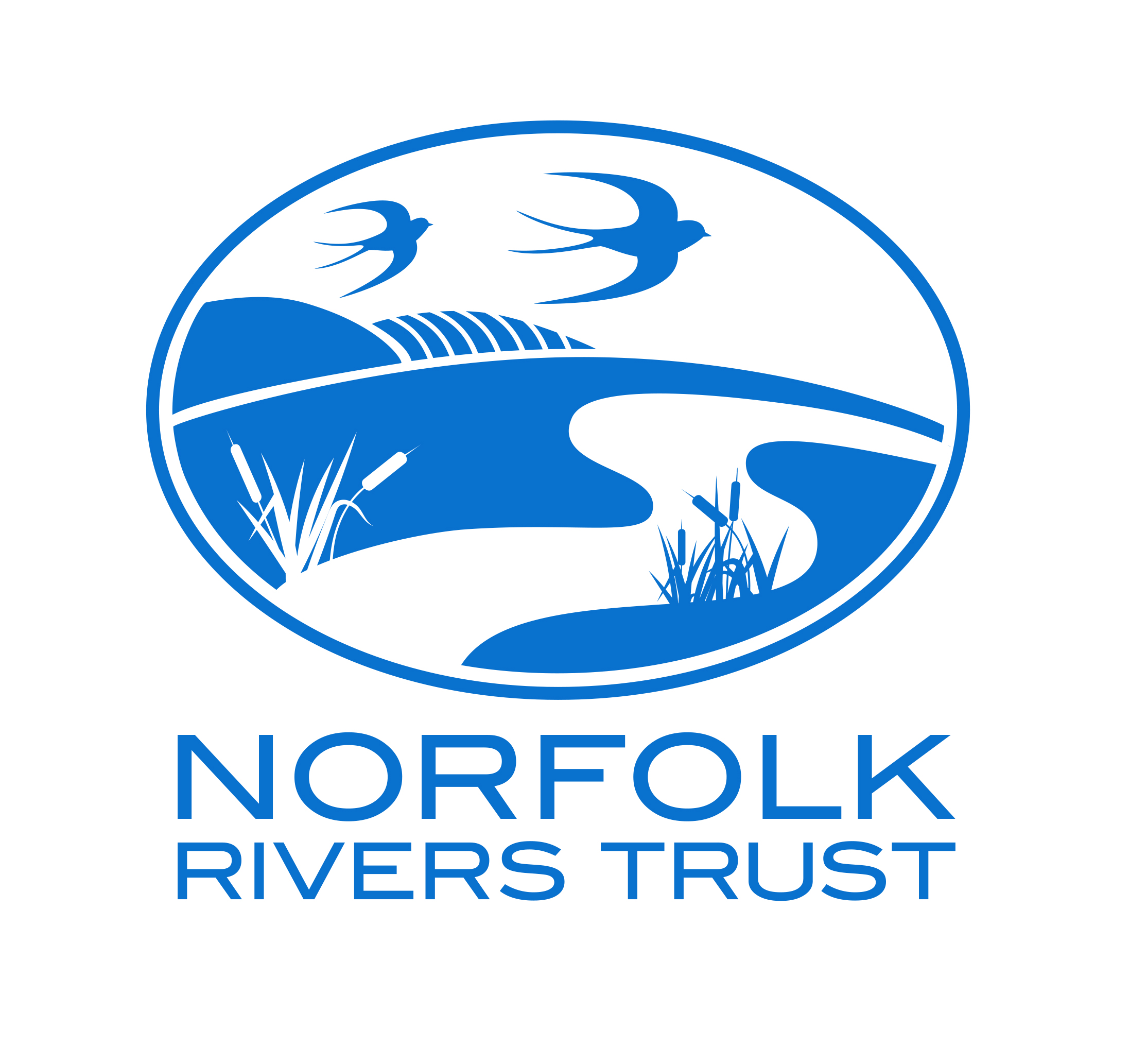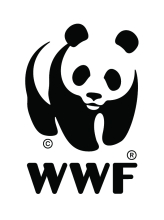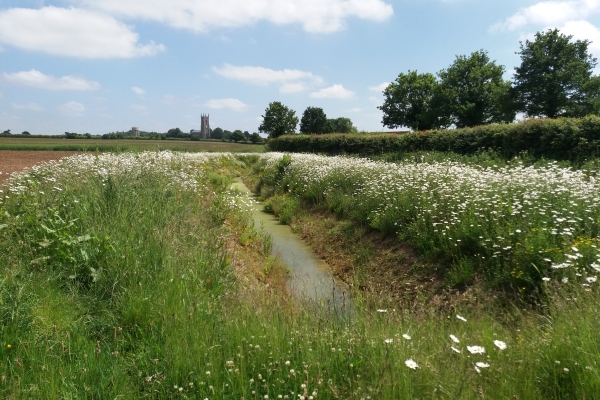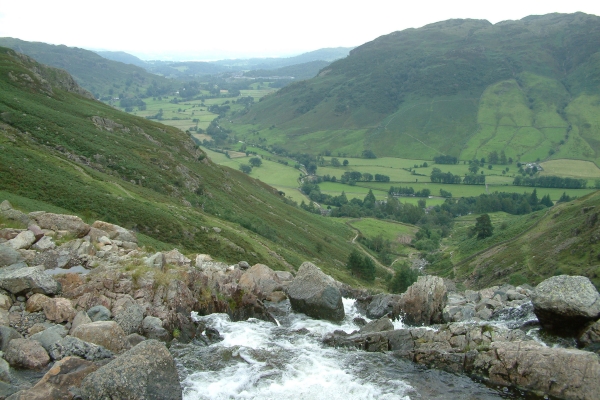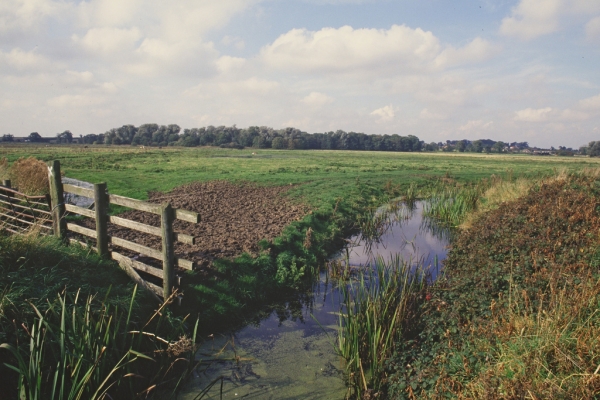Working with an outdoor pig unit to reduce soil & water pollution
Wayland Farms, West Acre, Norfolk
Resource explained
Produced by the Norfolk Rivers Trust, this document outlines a case study describing work that was undertaken as part of the Water Sensitive Farming Initiative (WSF)* to improve water quality. Sediment run-off had been occurring from an outdoor pig unit at Waylands Farm, Norfolk, located in the River Nar Catchment. During intense rainfall events, sediment was coming off the field and onto a track, which provided a pathway for it to flow onto the road and into drains. These drains could feed into the River Nar; an ecologically important chalk stream. It describes work already carried out by the farm and Norfolk rivers Trust to improve soil and water management, and the larger scale intervention that was needed – including installing buffer strips and silt traps to help capture and slow down polluted run-off.
Findings & recommendations
- Pig farming has been increasing in the River Nar catchment area and can be a threat to the ecology of the river due to sediment run-off.
- Practices Wayland Farms had already implemented through working with Norfolk Rivers Trust to improve soil and water management included having field margins of at least 6m left ‘tussocky’, having limited access for machinery in high-risk gateways, and wet and woodland areas acting as buffers.
- An assessment of the site was conducted to identify locations where runoff was likely to occur; taking into account land use, soil type, rainfall and connectivity through pathways to the receptor.
- Two silt traps were installed at the site with grant funding through the WSF initiative.
- Silt traps capture and slow down polluted run-off, enabling sediment and suspended solids (which can have nitrates and phosphates attached to them) to settle out.
- A couple of buffer strips were also implemented – they can help reduce run-off and provide an extra habitat.
- Track restoration work also took place to help trap run-off e.g. hump and cross-drain construction. Accumulated sediments are then returned to the field.
Silt trap 1- before
Slit trap 1
Grass margin
*WSF is an initiative that provides independent farm support and advice. The aim is to deliver practical on-farm measures that improve the quality and resilience of the surrounding water environment. Operating at a catchment scale (mainly in the Broadland Rivers and Cam and Ely Ouse catchments), Norfolk Rivers Trust farm advisors develop bespoke and flexible soil and water solutions that are tailored to individual needs.
Photo credits: Norfolk Rivers Trust (Header image shows silt trap 2). CC BY
